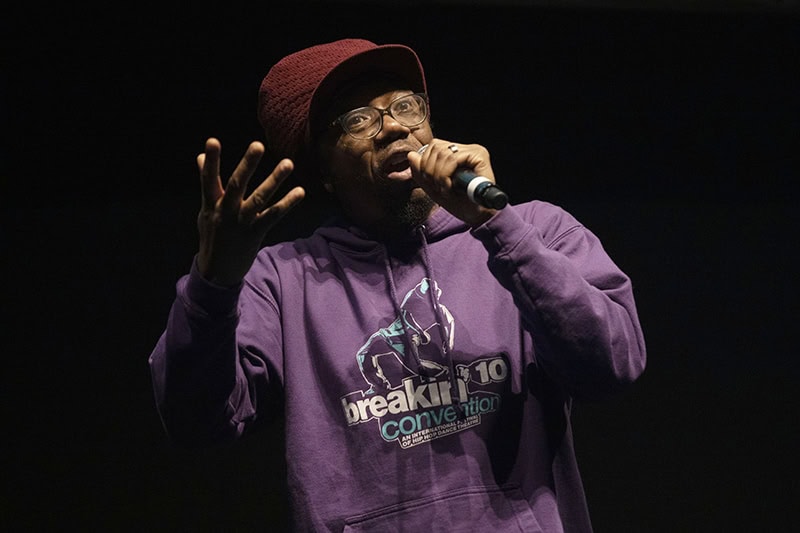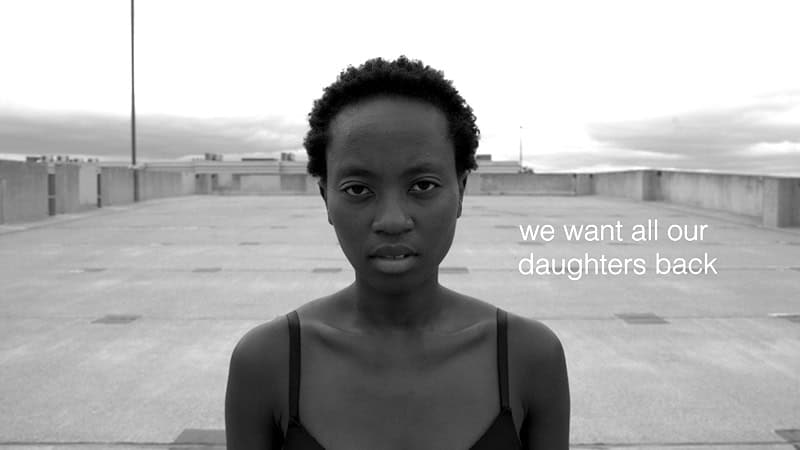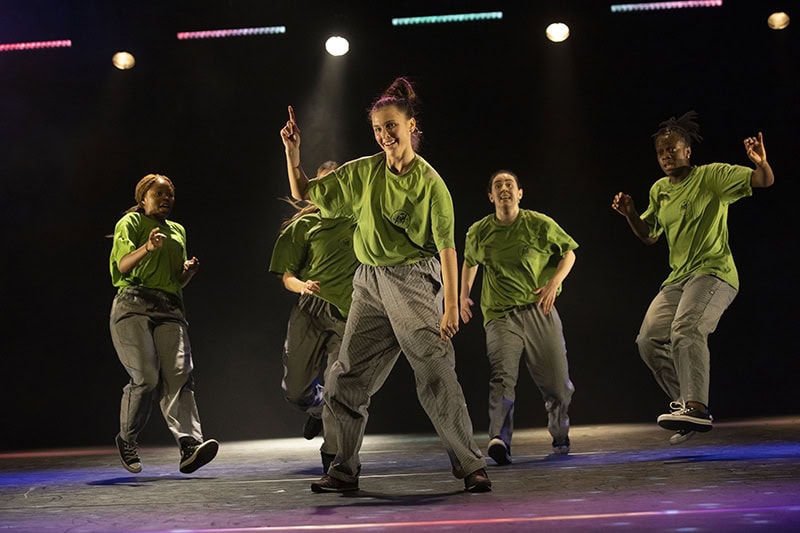Breakin’ Convention 2020: Social DisDancing at Sadler’s Wells
Posted: January 12th, 2021 | Author: Nicholas Minns | Filed under: Dance on Screen, Performance | Tags: Axelle 'Ebony' Munezero, Ben Williams, Bolegue Manuela, Botis Seva, Boy Blue Entertainment, Breakin' Convention, Breonna Taylor, George Floyd, Jamaal O'Driscoll, jessica Care Moore, Jonzi-D, Marius Mates, Nafisa Baba, Nicey Belgrave, Sandra Bland, Sean Aimey | Comments Off on Breakin’ Convention 2020: Social DisDancing at Sadler’s WellsBreakin’ Convention, Social DisDancing, Sadler’s Wells, December 11

Yes! A live performance at Sadler’s Wells in a brief respite from Covid restrictions. The subtitle of Jonzi D’s Breakin’ Convention riffs on government guidelines to produce Social DisDancing, an event tailored for a smaller audience at Sadler’s Wells than would normally attend this annual celebration of hip hop, proscribed by current safety regulations assiduously carried out by the theatre staff.
Since its inception in 2004 Breakin’ Convention has mapped ‘the origins and evolution of hip hop culture from around the world and around the corner’. Embodied in its ethos is a resistance to the norms of western theatre art and a choreographic celebration of Black identity, channelling the spirit of the Black Lives Matter movement long before it materialised. The killings of George Floyd — once a rapper affiliated with Houston’s Screwed Up Click — Breonna Taylor and Sandra Bland are three recent reminders in the U.S. of the systemic racial violence that constantly feeds into hip hop’s emotional charge.
Looking at the three stage performances and two films presented at this year’s Breakin’ Convention, the notion of resistance and defiance is ingrained in the choreography both in its physical power and unyielding psychology, but the enemy is sometimes within. Mental health issues are prominent in O’Driscoll Collective’s One%, where oppression is internalized as a struggle between bboy Marius Mates and his shadow, Jamaal O’Driscoll, while in Botis Seva’s solo filmed portrait of depression, Can’t Kill Us All, he takes themes of his BLKDOG and personalizes them, with his young rambunctious son as an antidote to his own dark state of life. The framing of the film by Ben Williams adds to the impression of suffocation in Seva’s powerfully tactile performance, drawing a parallel between the politics of mental health and those of racial discrimination.

Jonzi D’s film, Our Bodies Back, created with poet and performance artist jessica Care moore, is overt political resistance not only to the murder of Black women but to the pervasive anti-Black attitude to women. Three dancers in three cities — Nafisa Baba in London, Bolegue Manuela in Hanover and Axelle ‘Ebony’ Munezero in Montreal — each choreographed their response to moore’s words, filmed by three cameramen and seamlessly edited by Ben Williams. The power of each of these women is self-evident, but if their choreographic resistance takes its coiled force from the incendiary anger of moore’s delivery, it also extends through their bodies into an expression of hope and freedom, giving anger wings. The outdoor settings in which they are filmed may have helped this impression, but it’s also in moore’s metaphor of the body as both crime scene and source of inspiration. Invoking Judith Jamieson and Katherine Dunham, she incites these black, female bodies to continue resisting with unfettered confidence; Munezero resists with eloquence, Manuela with power and a Baba with soaring spirit.
In Boy Blue Entertainment’s Untethered 3.0 there is an overt sense of existential oppression that explodes in passages of virtuosic solo and ensemble dance. Here, the men (and Nicey Belgrave) remain resolutely within a style that has the aggressive DNA of hip hop while remaining self-referential; unlike in Can’t Kill Us All and Our Bodies Back, there is no way out. And yet, at the end when the cast relaxes and smiles to the applause of the crowd, the mask of aggression drops for a natural expression of joy. Could this not be a starting rather than an end point? Resistance can take many forms: in an early work, Aeroplane Man, Jonzi-D demonstrated a form of resistance filtered through his ebullient, sardonic wit and a freedom of movement grammar. It communicates on many levels and is still relevant today. How relevant will Untethered 3.0 be in 10 years?

The all-female A.I.M Collective’s Suspended was the one stage work that had no difficulty in exuding an exhilarating sense of mystery. The technical acuity of the performers is clear and there is an imagination at work in the choreography — the work was created by the company’s founder, Sean Aimey, along with the cast — that breaks up the force into contrasting filigree elements. The result is a sense of strength and resilience that breathes self-confidence.
In choreographic terms, there’s a danger that a genre as powerful as hip hop can become trapped in its own form (the same can happen with a genre like ballet where the past fails to adapt to the present). What Our Bodies Back and Suspended seem to suggest is that female intuition and power have a vital role to play in the development of hip hop and of Breakin’ Convention in particular.